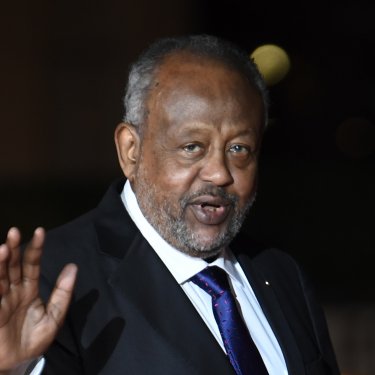Djibouti : a journalist beaten and arrested twice

Reporters Without Borders (RSF) calls for the immediate release of Osman Yonis Borogeh, a journalist who was detained and beaten by Djibouti’s police for two days last week and was re-arrested yesterday. The authorities must also quickly investigate the use of these unacceptable methods in order to identify and punish those responsible, RSF said.
A reporter for La Voix de Djibouti, a radio station based abroad that is Djibouti’s only independent media outlet, Borogeh thought the worst was behind him when he spoke to RSF yesterday morning, describing his two-day ordeal at the hands of Djibouti’s police that began on 23 October and ended when he was released during the night of 25 October. But his lawyer has told RSF that he was arrested again last night.
Borogeh told RSF yesterday morning that he was “badly beaten by men in civilian dress” when arrested last week. He was taken blindfolded to an isolated locationwhere he was finally questioned by a police lieutenant he recognized. He said he was beaten, tied to a tree, undressed and then filmed naked.
He said he was questioned about the identity of La Voix de Djibouti’s other correspondents and about those who were working with him in recent days on a story about the alleged rape of Ethiopian women by police officers.
He was also questioned about his links with the MRD, Djibouti’s main opposition party, of which he is a member. The police finally threatened to broadcast the video showing him naked if continued his journalistic activities.
“This journalist’s chilling account of being arrested in a completely illegal manner, tortured, humiliated and pressured to provide information, an account provided just before he was re-arrested, is a reminder of the extreme vulnerability of those who try to do independent reporting in Djibouti,” said Arnaud Froger, the head of RSF’s Africa desk.
“Osman Yonis Borogeh must be freed at once and we hold the authorities responsible for what happens to him. The seriousness of the abuses he described also requires a swift and thorough investigation in order to precisely identify and punish those responsible.”
President Ismaïl Omar Guelleh has ruled Djibouti with an iron hand for the past 20 years, tolerating no independent media within the country and forcing the six state TV channels, the national radio broadcaster and the daily newspaper La Nation to carry government propaganda. The arsenal used to suppress media freedom, which includes arrests, physical violence and judicial harassment, is among the harshest in the world.
Djibouti is ranked 173rd out of 180 countries in RSF’s 2019 World Press Freedom Index.



